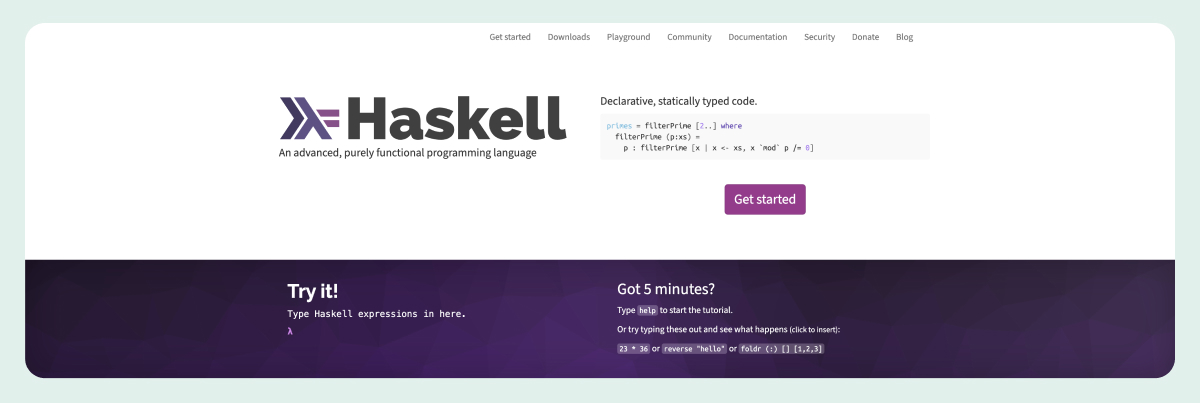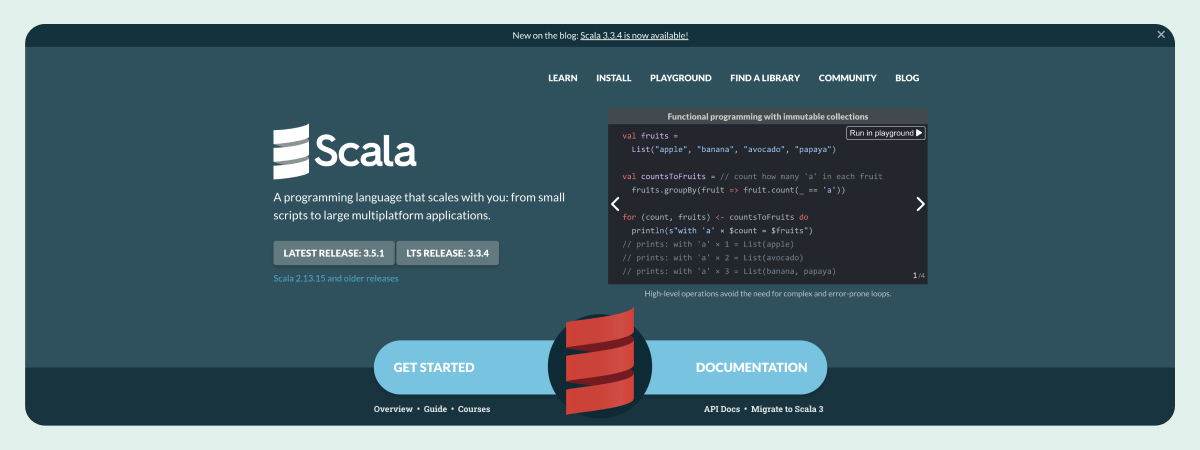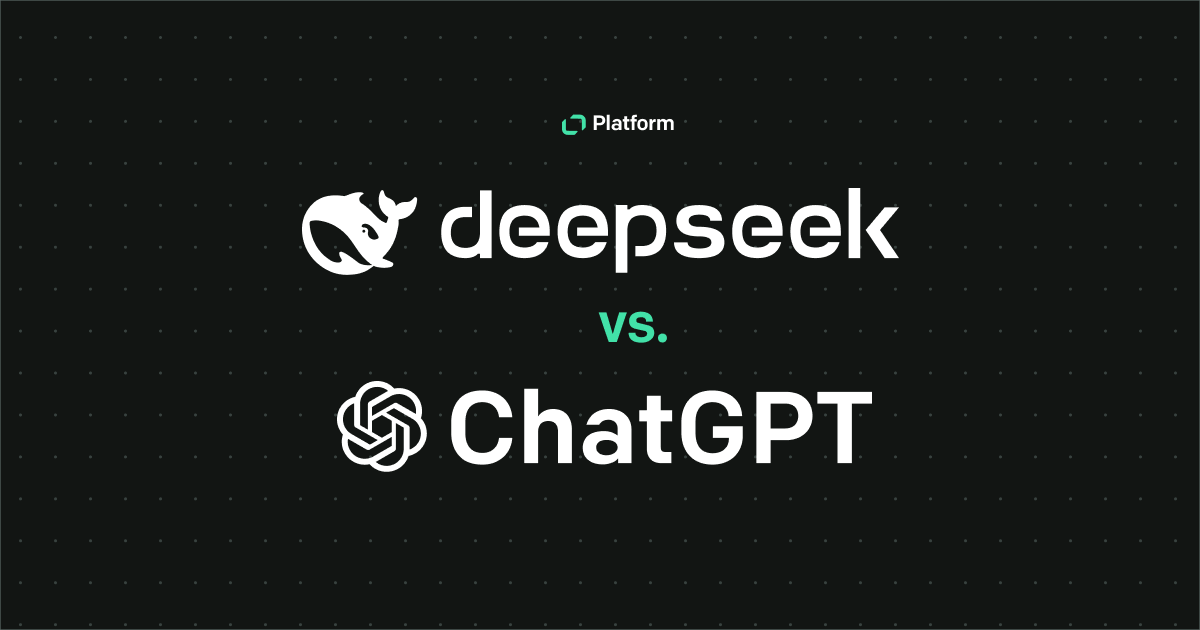What you’ll learn from this article:
- What makes a programming language hard to learn
- The top 7 hardest languages, including Haskell and C++
- Who these languages are for and when they’re worth learning
tl;dr:
Languages like Malbolge, Haskell, and C++ are notoriously difficult due to abstract concepts, syntax complexity, and low-level control.
So, what is the hardest programming language to learn?
It depends on how you define “hard.” Some languages are tough because they’re intentionally bizarre (like Malbolge), others require a completely different mindset, like Haskell’s pure functional style or C++’s manual memory handling. Whether a language is hard depends on abstraction, syntax, and how much it expects you to think like a machine.
Key findings
What types of languages are considered hardest?
There are two broad categories: intentionally difficult “esoteric” languages like Malbolge, and deeply technical ones like Haskell or Assembly that require a strong understanding of computer science fundamentals.
Why is Haskell so challenging?
Haskell is purely functional, which means it avoids side effects entirely. That requires a totally different mental model — one that’s really powerful but tough to learn from imperative languages like Python or JavaScript.
What makes C++ a tough language, even though it’s popular?
C++ gives you a lot of power but demands a lot in return. You manage memory manually, deal with complicated syntax, and face a steep learning curve if you go beyond the basics, especially when working with its vast Standard Template Library.
Should you learn a hard language?
If you want to grow as a developer, yes. These languages sharpen your thinking and force you to understand what’s happening under the hood.
Some modern programming languages are easy to learn, but there's always the other side of the coin. The question arises — which language is the hardest ever created? Will learning one give you a competitive advantage in the programming market?
The hardest programming languages are usually the more traditional ones, and some don't have enough applications or are very specific to a particular field.
The hardest programming languages can also be called esoteric languages. An esoteric programming language (or esolang) is intentionally unconventional or experimental. They’re usually created as a form of expression, for fun, or to explore strange programming concepts. Esolangs often have odd syntax or bizarre rules, making them incredibly hard to use for real-world tasks.
This guide covers everything you need to know about hard programming languages so you can decide whether they're worth learning.
What makes a programming language hard to learn?
Programming can be difficult for various reasons, so the term "hardest programming language" could have multiple meanings. Still, there are a few specific factors that can make a programming language hard to learn:
- Syntax complexity. One of the primary reasons you can consider a programming language hard to learn is its complex syntax. A verbose syntax is hard to learn, even for intermediate coders.
- Abstraction level. Abstraction is useful for simplifying the complex structure of code, which includes algorithms, libraries, APIs, etc. If the language is directly connected to hardware, such as assembly language, it's harder to learn.
- Compiler vs. interpreter. Compiled languages can be harder to learn because you must wait for the whole program to compile to find errors, slowing down debugging. Interpreted languages provide instant feedback, making learning and fixing mistakes as you go easier.
- Multiple paradigm support. Another technical reason a programming language can be difficult is multiple paradigms. If a language involves functional, object-oriented, or imperative programming all at once, it's difficult for people to grasp and learn.
7 Hardest programming languages to learn
1. Haskell
There are multiple reasons why Haskell is considered one of the hardest programming languages. Haskell is a purely functional programming language built on lambda calculus. Simply put, no written function will have side effects on any other code written on the project. A bug-free environment is critical when working on, for example, an academic or financial project.
As the functions aren't dependent on others, Haskell makes solving any bugs that arise faster. It’s used for highly specific cases, mostly in financial and data-related industries. A regular mid-sized fintech firm won't necessarily need Haskell as its core coding language.

What makes Haskell hard to learn?
Haskell is one of the purely functional programming languages. To master it, you must change your mindset from a modern language like Python to a traditional one.
What are Haskell's applications, and who is it for?
Haskell is mainly used in places where error-free and fully reliable solutions are key, such as the financial industry. It's worth learning if you want to work in a specialized and advanced field in academia, data science, or fintech.
Where do you learn Haskell?
To learn Haskell, you need to familiarize yourself with the concept of a traditional language. The best way to do this is to go through Haskell’s official website and explore the Wiki. Once you’re comfortable, you can move on to specific courses, such as "Learn You a Haskell."
2. C++
If you're a student or someone already learning C/C++, you’ll most likely be surprised to see it on the list. For starters, C may seem easier. In many places, students start their programming journey with C/C++ to get the concepts clear. The C language is the core and comparatively easier to learn. However, C++ is an object-oriented language made on top of C.
Most coding languages have automatic memory management, but that's not the case with C++. In C++, you need to code in a way that uses less memory. To make it even more complex, C++ has one of the biggest Standard Template Library (STL). Its template classes offer data structures and algorithms, and with so many libraries, pointers, and memory management, its compiler throws more errors.
Advanced C++ was previously used only for desktop applications; however, it now has multiple use cases, especially in the gaming industry.
What makes C++ hard to learn?
C++ has a complex syntax. Most people learning C++ start with the basic editor, not an IDE, making it even harder to learn the syntax. Further, manual memory management and the vast STL add extra difficulty levels.
What are C++'s applications, and who is it for?
C++ is mainly used in game development, creating system software, and some performance-critical applications.
Where do you learn C++?
Luckily, there are thousands of C++ resources available to learn from. Due to the nature of this programming language, most of the courses will teach you from the basics. However, we recommend taking text-based tutorials like TutorialsPoint to begin your learning journey, which will help you understand the basics.
3. Lisp
Lisp is one of the languages with the hardest-ever syntax. If you encounter problems with learning the syntax of programming languages, Lisp might not be the best choice for you.
The name Lisp comes from "list processor." Linked lists are important data structures in Lisp and are put in parentheses. Their syntax has symbolic expressions (S-expressions). Further, Lisp uses lambda calculus directly in the language, making the syntax even harder to understand.
What makes Lisp hard to learn?
The main reason why Lisp is hard to learn is because of S-expressions and syntax. Forgetting to put up parentheses is a common error that messes with your brain.
What are Lisp's applications, and who is it for?
Lisp was traditionally used in system programming, but it has a few other solid use cases. With the rise of artificial intelligence (AI), it has become more popular to use it for AI research. As it's near machine learning (ML), Lisp helps in natural language processing (NLP).
Due to Lisp's limited use cases, we recommend only learning it once you find the use case that fits your needs.
Where do you learn Lisp?
We highly recommend learning Lisp's syntax before you proceed with the courses. The best resource to learn the basic syntax is always the official documentation. Along with docs, you can get help from TutorailsPoint. The Common Lisp playbook will also give you a rough idea about the language.
4. Rust
Rust is a unique programming language that combines low-level control with memory safety. It focuses on type safety and concurrency.
Rust uses lower resources and provides much faster performance as it has no runtime or garbage collector. Most programmers have a habit of using a garbage collector for reclaiming memory. However, here, you need to learn about Rust's ownership and borrowing system to save memory.
At first glance, learning the language may seem extremely difficult, but Rust has many interesting features to boost your learning curve. Rust's error message gives complete information for debugging. It also has multiple features for editing and writing code, such as an integrated package manager, auto-completion, and much more.
Unlike other languages such as Haskell or Lisp, Rust is quite popular. It's used in WebAssembly, Embedded Systems, and many other places. So, if you wish to work on high-performance applications, it's worth learning.

What makes Rust hard to learn?
Rust's ownership and borrowing system is difficult to understand for a beginner or even for an intermediate. Once you master it, the productive score increases. After mastering memory management, you'll probably start loving the challenges and using Rust.
What are Rust's applications, and who is it for?
Rust has multiple uses. It's mainly used in systems programming, web development (WebAssembly), browser-related applications, and game development. If you wish to enter one of these or you're working with embedded systems, Rust is worth your time.
Where do you learn Rust?
It's harder to find the correct resources for Rust that suits your learning style. The best material you can start with is the official documentation. They have a book to learn Rust and also have a course called Rustlings. You can learn a lot from there.
5. Prolog
If you love programming logic and solving problems, Prolog is perfect yet one of the most difficult programming languages you can master. It’s a logic programming language designed to solve problems using rule-based logical queries based on relationships and rules.
An imperative programming language works by specifying how a problem should be solved. Prolog is a unique language that defines the problem and then states the facts and rules defining the solution. This approach makes it stand out from other languages. Prolog is widely used in places where using relationships and rules to solve problems is a priority. Such niches include AI, ML, and NLP.
Prolog is one of the toughest programming languages, but it is worth learning even in 2025 due to its high number of use cases, especially in AI. We recommend learning it alongside other easiest programming languages.
What makes Prolog hard to learn?
If you love programming logic, you might consider Prolog an easy programming language to learn. However, if programming logic isn't your strongest suit, you might place it among the list of hard programming languages. Other than logic, the language is quite easy.
What are Prolog's applications, and who is it for?
The two main use cases are symbolic computation and artificial intelligence. If you want to master AI, Prolog is worth your time, as it will strengthen your programming logic.
Where do you learn Prolog?
Prolog is considered the toughest programming language because it's logic-based. To master it, you need to focus mostly on practice rather than a course. Learn the basics from the official documentation and start practicing by creating small projects. The Text Platform can help you deploy your app.
6. Scala
Scala combines object-oriented and functional programming, making it one of the hardest programming languages, but it has more practical applications. Its core feature is scalability — it can handle a lot of large data at once, making it a highly recommended language for data science and large-scale applications.
Scala is a type-safe programming language and has compatibility with Java Virtual Machine (JVM). In some way, you could say it's a better Java. Scalability is the main reason why people learn Scala despite being one of the hardest coding languages out there. If you're planning to pursue data science, it's good to learn the basics.
Scala also has a rich type system along with complex functions like monads and higher-kinded types. This makes it one of the most complex programming languages even in terms of syntax. There are some advantages as well — the type-safe languages make it minimally viable for errors, so you'll spend much less time debugging.

What makes Scala hard to learn?
Scala is a mix of object-oriented and functional programming, so beginners find it difficult to get started. However, knowing both of these will make it much easier. The syntax can also be a little hard to learn for some people.
What are Scala's applications, and who is it for?
Scala is a language that's widely used in big data, data engineering, large-scale applications, and distributed systems. Due to its nature, Scala is used in any system that needs more scalability. If working on scalable systems or big data is your dream career, Scala is for you.
Where do you learn Scala?
Scala is a popular programming language. Coursera or Edureka is a good place to start your journey.
7. Malbolge
By now, we listed many hard programming languages. However, this one is without a doubt, the toughest programming language you will learn.
The esoteric programming languages have a unique name origin. So does Malbolge, created by Ben Olmstead in 1998. It's named after the eighth circle of hell in Dante's Inferno. To give a gist of how hard THE hardest programming language is, it took nearly two years to complete the first program. However, the founder, Olmstead, never wrote a single program. A human didn't even write the first one ever — Beam Search generated it. That's how esoteric Malbolge is.
Despite being involved in so many controversies and considered the most difficult programming language, Malbolge has the attention of many programmers. Its code is self-modifying, meaning it modifies itself when executed, making it impossible to understand its behavior.
You might start to wonder why Malbolge was created in the first place, right? Well, it was solely created to showcase how difficult a programming language could be. It has no real practical usage.
What makes Malbolge hard to learn?
Malbolge is one of the hardest programming languages, intentionally designed to be impossible to learn. From code readability to syntax, there are many issues to list. There's no proper guide to begin with. Next, it has restricted instructions and instructions substitution after execution. All these make it next to impossible to learn.
What are Malbolge's applications, and who is it for?
Malbolge has no practical applications, but give it a try if you want to have some fun coding or simply donate your mental peace to Malbogle. That's how it's unique from other programming languages.
Where do you learn Malbolge?
You'll find many online guides with tutorials related to Malbolge. To explore the esoteric programming language, you can check out Kamila Szewczyk's Lisp interpreter in Malbolge Unshackled.
Should you learn a hard programming language?
So, if there are so many easy programming languages to learn with a huge scope in your career, why would someone spend their time learning them?
Such coding languages are mostly for developers who want to work on advanced and very specific niches. Any language can be the hardest, depending on your skill set and programming strengths.
That said, we don't recommend solely relying on the easiest programming languages. Writing PHP code, learning hypertext markup language, and even learning an object-oriented programming language is easy, but we strongly recommend focusing on programming languages with multiple use cases.
For instance, some popular programming languages with a big career scope include Python, Node, and Flutter. They aren't the easiest, but they're far from being considered the hardest computer programming languages.
Lastly, if you're still confused about choosing your first programming language to learn, check out this guide on how to choose your first programming language.
Conclusion
While these are some of the toughest programming languages worth learning, not all are. You can learn more about Prolog, C++, and Lisp as they have practical applications. Besides that, you can focus on the easiest programming languages with more practical applications.
No matter your choice, you still need to practice a lot. While deploying code on your local system is good, you should make it live whenever possible. Especially if you're a computer science student, making your project live will help you in many future opportunities.

That's where the Text Platform comes into play. It helps you everywhere, from creating your app to integrating APIs, learning more about programming languages, and even monetizing your app. This will make your learning curve a lot easier and more interesting with an actual goal.
Happy learning!


